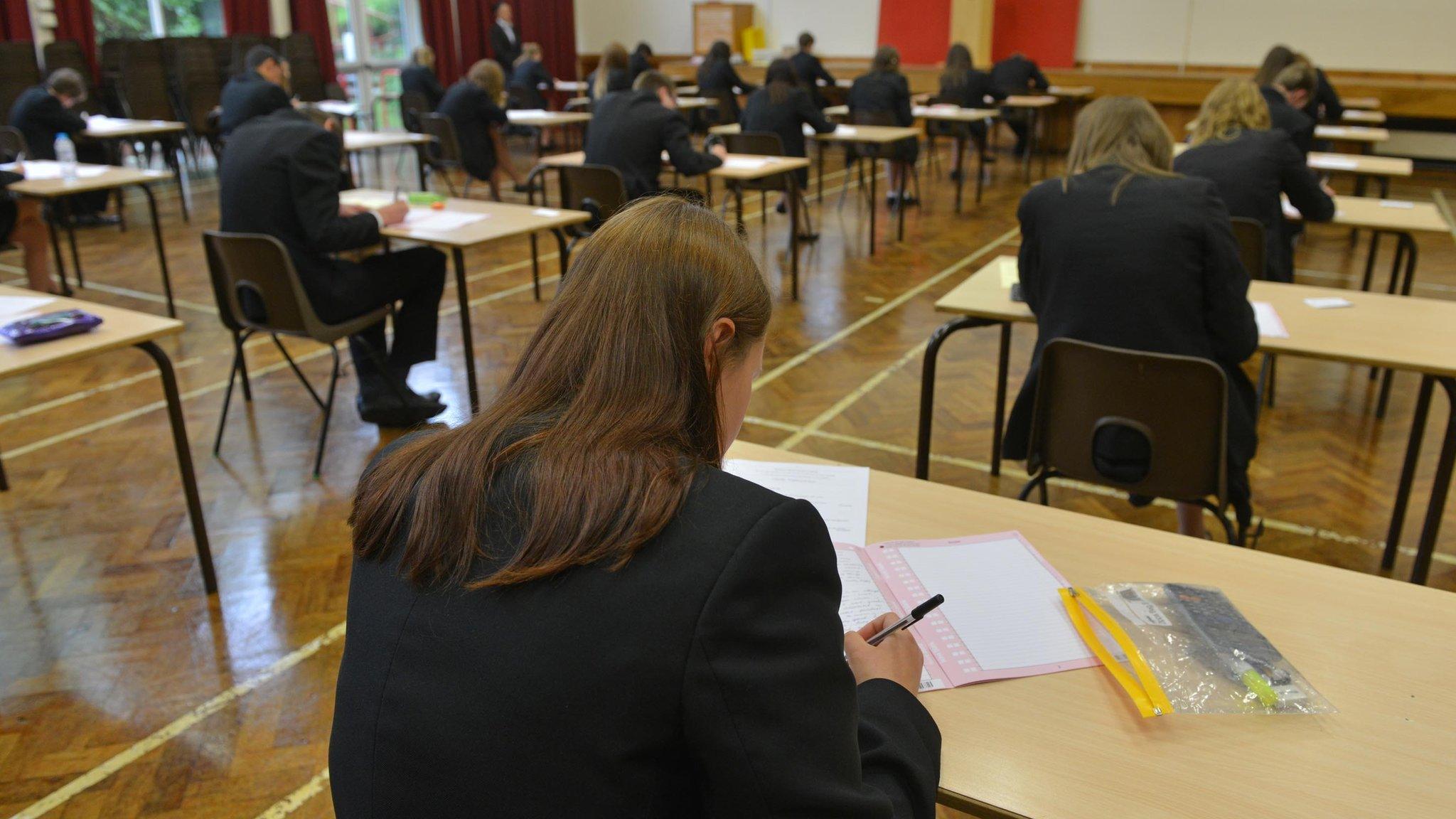GCSEs: NI pupils outperform rest of UK in A*-C grades
- Published
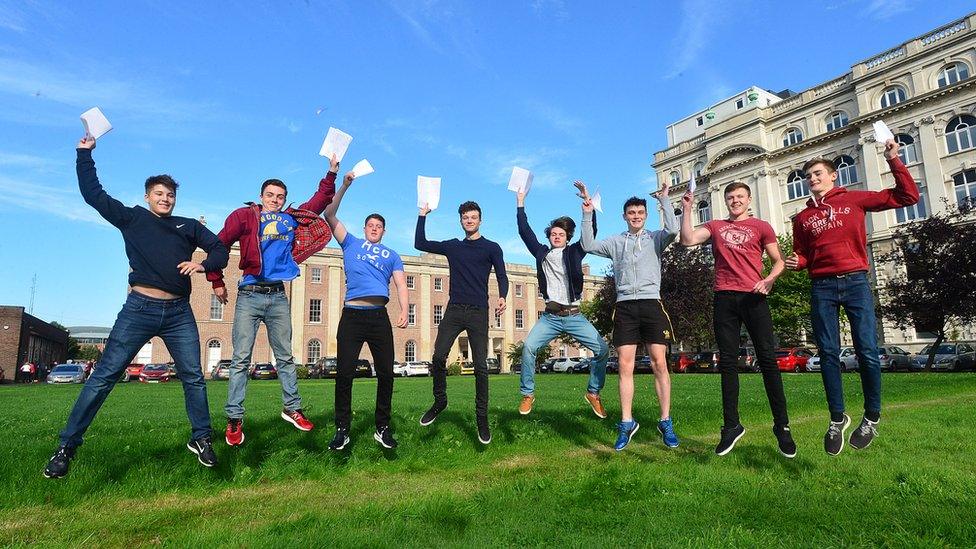
GCSE students celebrated their exam results at the Royal Belfast Academical Institution (RBAI) on Thursday morning
Pupils in Northern Ireland have outperformed those in the rest of the UK in terms of A*-C grades at GCSE.
About 30,000 local students received their 2016 exam results on Thursday.
Overall, the number of entries awarded A* to C grades in Northern Ireland increased by 0.4% to 79.1%.
That is much higher than the overall performance of students across the UK, where 66.9% of all entries achieved A* to C grades.
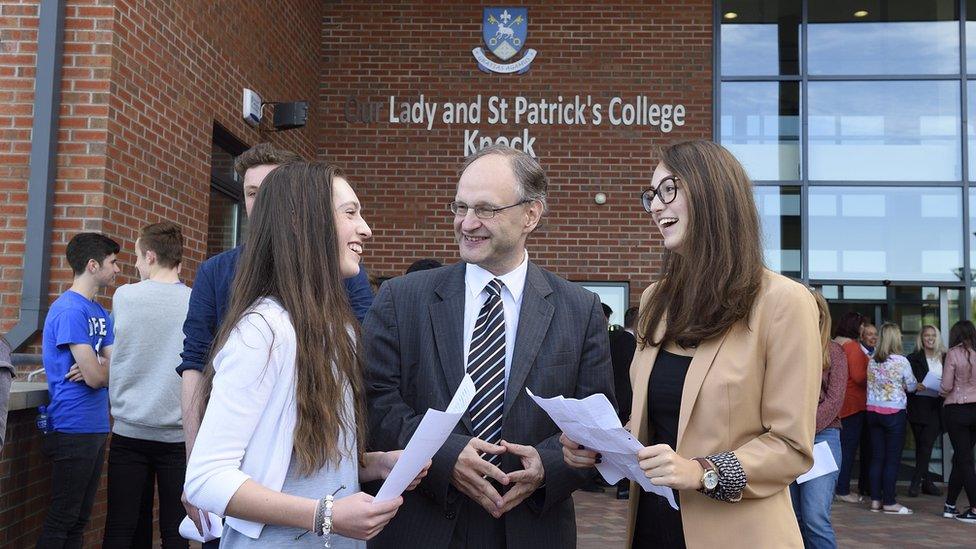
Education Minister Peter Weir visited Our Lady's and St Patrick's College where he congratulated pupils on their results, including Eimear Rogers (left) and Clare Dempsey
Northern Ireland entries achieving A* and A grades also improved on 2015, up by 0.5% to 29.1% and 9.3% of entries received the top A* grade, up from 9% in 2015.
Girls outperform boys
There were also improvements in GCSE English results, but the Maths results worsened.
Girls continue to outperform boys across the UK, with the gap widening by 0.5% since 2015.x
While 75.3% of entries from boys achieved A* to C grades, slightly up from last year, 82.9% of entries from girls attracted those grades.
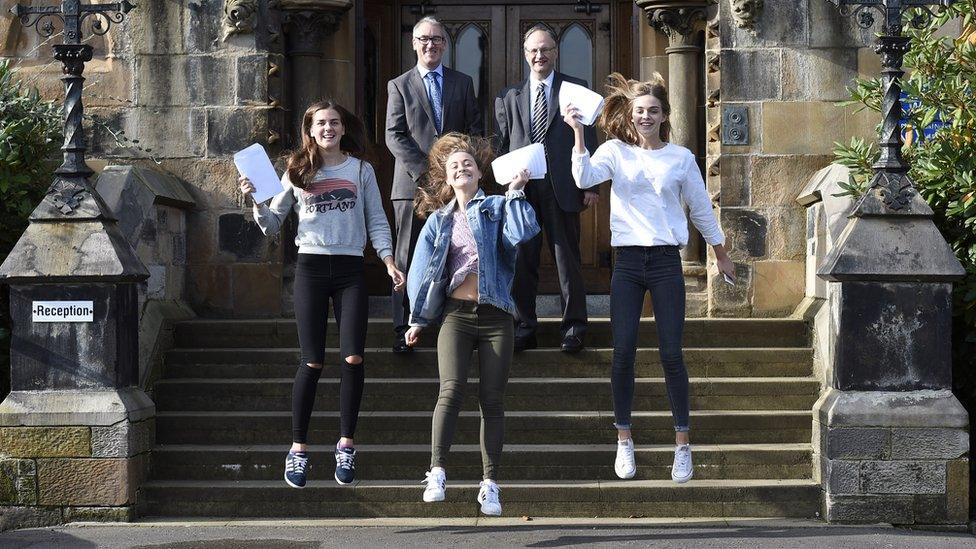
The education minister also visited Methodist College in Belfast where pupils Lauren Bell, Zoe Hagan and Caitriona Marsh were jumping for joy over their results
In 2016 the proportion of entries in STEM subjects (science, technology, engineering and mathematics) grew again, meaning they now make up almost a third of all GCSEs taken.
There were also more students taking GCSEs in biology, chemistry and computing.
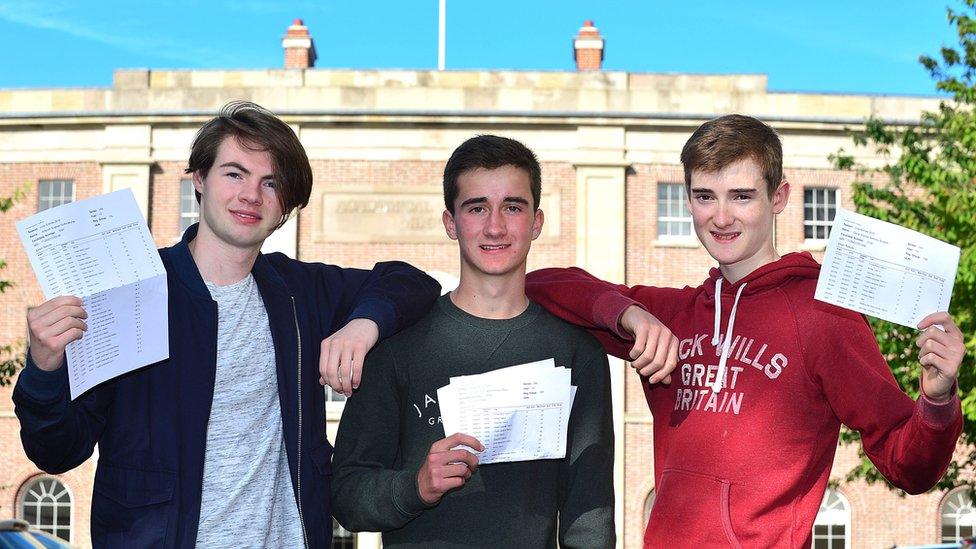
These RBAI pupils were among the 30,000 Northern Ireland students who received their GCSE results on Thursday
However, entries for most languages fell again in 2016, with declines in the number taking French, Spanish and Irish at GCSE.
Many of those getting their results will go on to further study in their schools or in FE colleges.
However a significant number of pupils, especially from disadvantaged areas, will leave school with few qualifications.
- Published28 June 2016
- Published20 August 2015
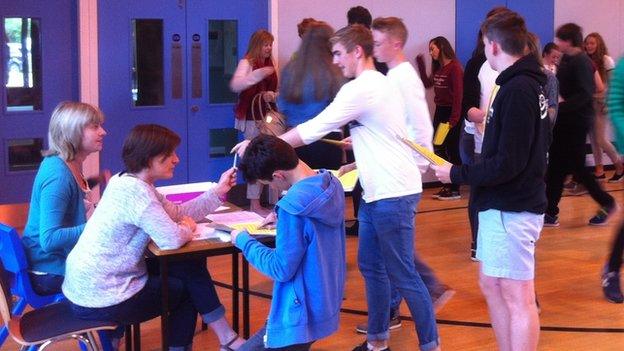
- Published21 August 2014
